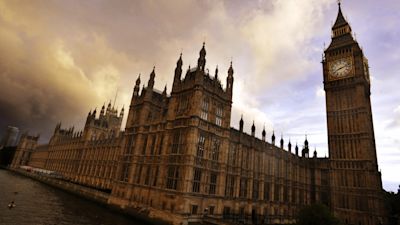MPs' ten-point plan to clean up sleaze in the House of Commons

ITV News Political Correspondent Carl Dinnen reports on the proposals put forward by the Committee on Standards
A bid to clean up the House of Commons is underway amid claims that sleaze has once again infected parliamentary politics, after a number of MPs were accused of corruption in past weeks.
Politicians have faced increased scrutiny after the Owen Paterson debacle, which saw the government attempt to rip up the standards process so the former minister could appeal his recommended punishment for breaking lobbying rules.
There was a furious backlash - with the prime minister being accused of trying get his friend "off the hook" - and the government U-turned.
In the weeks that followed several MPs were accused of being involved in dodgy practices, from lobbying to working questionable second jobs, and it was decided the process for scrutinising MPs' standards must be tightened.
To address concerns, the Committee on Standards published a list of recommendations for reforms to tighten the rules around lobbying, transparency and conflicts of interest in the House of Commons, and to make other improvements to the standards system.
The cost of Boris Johnson's recent holiday could be revealed under the new plan, ITV News Correspondent Rachel Younger reports
Here are the proposals:
An outright ban on any MPs providing paid parliamentary advice, consultancy or strategy services
A new requirement for MPs to have a written contract for any outside work which states they cannot lobby ministers, Members or public officials, or provide advice about how to lobby or influence Parliament
Clarify the ‘serious wrong exemption’ in lobbying rules to make clearer the risks of conflicts of interests and stop it being used as a loophole
Double the six-month limit on MPs' contribution to debates in which they may have had a conflict of interest to 12 months after the reward was received - MPs will still be able to release themselves immediately from the restrictions by repaying any sums received in the relevant period
MPs should be encouraged to seek expert advice before acting. MPs could be exempt from being found in breach of the rules if they have sought and followed the advice of the House of Commons Registrar
End the exemption where ministers are not required to register gifts and hospitality they receive in their ministerial capacity with the Commons Register, so that all of a Member's outside interests can be found in a single place
Improve the transparency and searchability of the Commons register of members' financial interests
Add a new rule to the code of conduct banning MPs from subjecting anyone to "unreasonable and excessive personal attack" in any medium.
A ban on taking up second jobs that would prevent politicians from fully carrying out their range of duties as MPs - questions have been raised about how this principle could be enforced and the committee is seeking advice on how to achieve the ban
Labour Leader Angela Rayner gave a speech on standards on Monday morning, setting out how her party would tackle sleaze in Parliament, as she accused the PM of corruption.
Giving a speech at the Institute for government, Ms Rayner said: "The next Labour government will act to stamp out the corruption that Boris Johnson and his government has polluted our democracy with."
Labour has said it would introduce an independent watchdog able to launch investigations and demand the sacking of ministers under plans to prevent corruption and protect taxpayers' money.
Former ministers would be banned from lobbying, consultancy or any paid work relating to their old roles for at least five years under the plans if Labour seized No 10.
Ms Rayner said: "The changes that I have set out today will overhaul the broken system that has failed to stop the spread of corruption under this prime minister."
Mr Johnson has faced criticism from Labour for declaring a free holiday at a villa owned by the family of Tory peer and minister Lord Goldsmith on the list of ministers' interests but not on the parliamentary register which could require the publication of more details such as the value of the stay.
The focus on "sleaze" at Westminster follows the case of former minister Mr Paterson, who was found to have breached lobbying rules and faced the prospect of a 30-day suspension from the Commons before quitting as an MP.
Mr Paterson and his allies claimed he was denied justice because of the lack of an appeal process in the system.
Labour MP Chris Bryant, who chairs the committee, said the "robust proposals" will "empower the standards system in Parliament to better hold MPs who break the rules to account".
The proposals are now under public consultation and MPs will be asked to vote on them in the New Year.
Mr Bryant said the changes are what "we need to tighten up the rules and crack down on conflicts of interests following a detailed evidence-led inquiry".